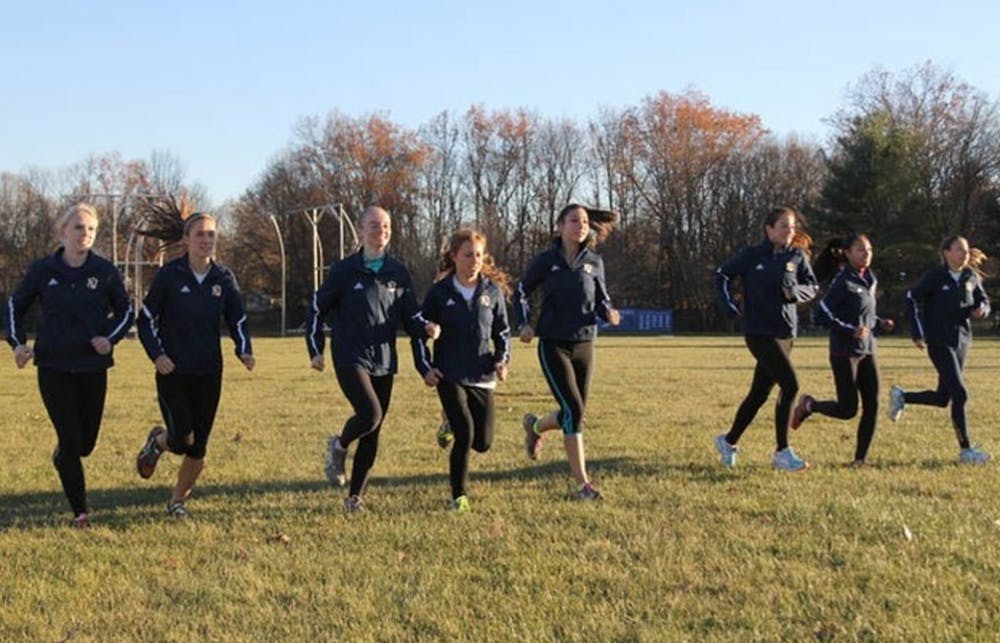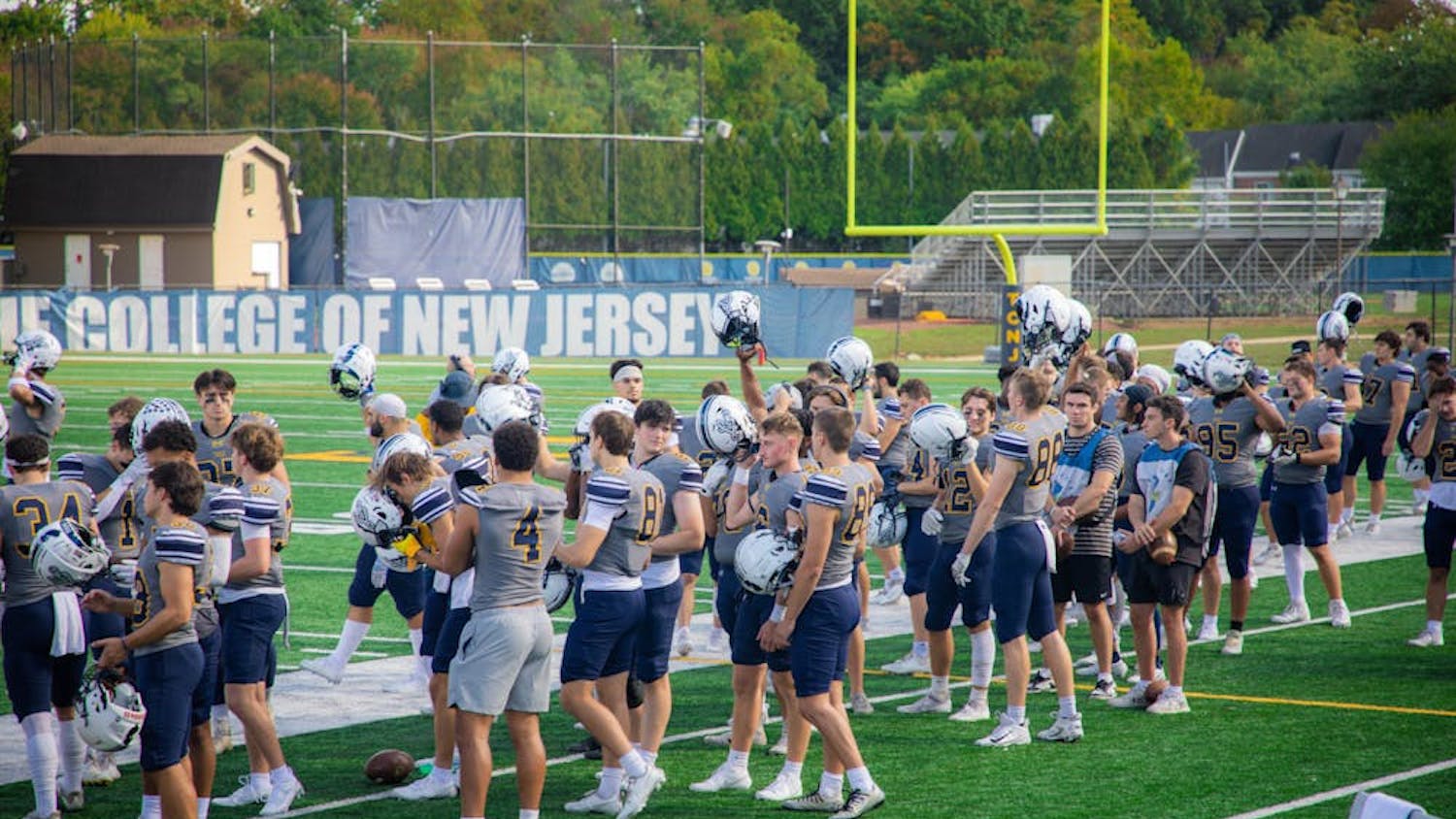Being a student athlete at the College certainly comes with its set of challenges. Student athletes have multiple practices, games and tournaments, all while somehow managing to be a full-time student.
The combined cumulative GPA for all varsity teams at the College this past fall was 3.2, and, in total, 17 of the 20 varsity sports had a team GPA of 3.0.
“That release we put out about 17 out of 20 sports … is evidence that this institution has it right,” said Mark Gola, director of Athletic Communications. “Every team wants to win a championship, but (athletes at the College) have that same attitude and expectation in the classroom and in the community. This institution really has it right in terms of that student-athlete balance.”
This past fall, each of the College’s eight fall sports finished with a team GPA of 3.0 or higher, supporting the belief of many that student athletes actually perform better when their team is in season.
“Track and cross country actually help me manage my time better,” said Megan Flynn, a senior health and exercise science major who is on the track and cross country teams. “It helps me to keep a schedule so I know exactly when I have to do homework. It keeps me from procrastinating because I know I don’t have much time so I make sure to stay focused in the time that I have.”
Flynn said the most difficult part of being a student athlete is the time commitment. In fact, for some races, she’s away for two or three days at a time, oftentimes having to make up missed classes, and each day requires at least three hours of practice. But despite the time commitment, Flynn has managed to earn a GPA of 3.943.
“You want to make sure students are prospering in the classroom, because that’s why they’re here,” Gola said. “At an institution like this, the hope is that it’s a source of pride, that it’s a reflection of the institution’s values.”
Howard Telson, a senior accounting major, has played on the men’s varsity tennis team all four years, but has still managed to earn a GPA of around 3.95 — although it certainly hasn’t been an easy task.
“Sometimes when we’re away, we’re away for a really long time, and I’ll have to study on the bus or study in the hotel when the other guys are kind of just fooling around,” he said. “It’s hard to focus when we’re on a bus or people are sleeping next to me or listening to music or watching a movie — I’d say that’s probably the biggest challenge.”
The women’s cross country team has the highest overall cumulative GPA for female sports at 3.66. The men’s soccer team takes the lead for all men’s sports with a team GPA of 3.38.
“The biggest reward for a student athlete — as just an athlete — is to win a championship,” Gola said. “For the student aspect of it, it would be to excel in your classes, get a degree and have a direction for what you’re gonna do following your education here. The combination of those things is to optimize your time here and develop — develop character, develop as a person and develop a plan you’re gonna use moving forward.”
According to Telson, playing a varsity sport in college can also help prepare students for life after graduation.
“I think it’s really taught me, one, how to manage my time and, two, how to thrive in a competitive environment,” he said. “I’ve learned how to work under pressure in a tennis match, and I think that’ll be really important when I’m working in accounting.”
Compared to other schools, the College has it right in terms of the student-athlete balance, Gola said. In fact, in many schools, according to Gola, athletics are “completely blown up and out of control,” especially at the Division I level. Gola said at many schools, sports have become more of a business.
Although it’s a huge time commitment, for most student athletes, the time has been well worth the reward.
“You can (learn) composure through varsity athletics because, in a game, there’s constant pressure situations or situations where you have to adapt and think and keep your emotions at bay, so I think that’s something that’s learned through athletics,” Gola said. “Teamwork, time management, work ethic, persistence, developing confidence in yourself, understanding your role in who you are — all those things are applicable to your professional life but also your personal life.”







